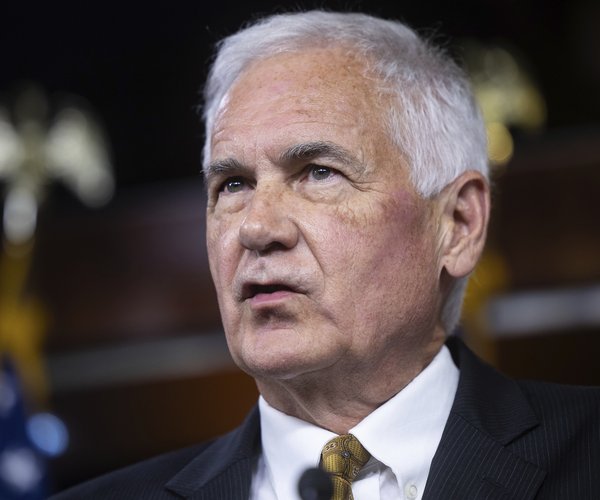The Turlock Irrigation District is applauding Gov. Gavin Newsom’s efforts to compromise when it comes to the state’s ongoing water wars.
Following Newsom’s Feb. 4 Cal Matters op-ed where he urged the state to “get past differences on water,” TID, Modesto Irrigation District and the San Francisco Public Utilities Commission released a joint statement supporting his prioritization of the issue.
“Governor Newsom hasn’t wavered from his commitment to, and confidence in, the ongoing voluntary agreement process,” the statement reads. “The Governor and his Administration have brought a newfound sense of urgency and recognition of the need for collaborative water management.”
In his editorial, Newsom revealed a plan that would keep more water in the fragile San Joaquin River Delta while restoring 60,000 acres of habitat for endangered species and generating more than $5 billion in new funding for environmental improvements.
He calls for voluntary agreements, rather than State-set rules and regulations, between farmers and environmental groups that help prevent lawsuits and will achieve tangible results.
“If achieved, the voluntary agreements will establish a partnership with environmental conservation groups, water agencies, and governments across jurisdictions,” Newsom wrote. “The water and funding from these stakeholders will provide an unprecedented pool of resources to support the restoration of critical fish habitat and billions of gallons of flow water in our rivers and through the Delta over the next 15 years.”
Newsom added that the voluntary agreements will be foundational to meeting his goal of doubling California’s salmon population by 2050.
One such agreement is the Tuolumne River Voluntary Agreement, which utilizes flow measures in combination with non-flow measures like predation control and gravel rehabilitation to provide a better environment for salmon. The plan was developed in response to the State Water Board’s proposal to increase river flows for the salmon, which would decimate Valley farmers’ water supply.
“The Tuolumne River Voluntary Agreement is an explicit example in this revolutionary approach as it seeks to balance water supplies to support thriving communities and fisheries, while striving to break the current paradigm of management through regulation and litigation,” the TID, MID and SFPUC statement says. “Science remains the cornerstone of the Tuolumne River Voluntary Agreement. We’ve invested heavily in studying and truly understanding the Tuolumne River, the species and industries that depend on it and developed a realistic and sustainable plan. We are encouraged that the Voluntary Agreement we submitted over a year ago, based on Tuolumne River specific science, has held up to the public and scientific examination.”
The agreements would be in place for the next 15 years, but have yet to be completed as there as still policy and legal issues left to iron out. Additionally, the State Water Board must conduct a third-party scientific review.
“Guided by science, this new framework will provide the foundation for binding voluntary agreements between government agencies and water users with partnership and oversight from environmental groups,” Newsom wrote.
Years-long litigation would threaten not only these potential partnerships, he added, but the invaluable water itself.
“Those years will be critical years for salmon populations, which without immediate intervention will further decline. Access to water for tens of millions of Californians will become less reliable, impacting our people and economy. And our communities and businesses will be further threatened by the impacts of climate change. These outcomes are unacceptable,” Newsom wrote.
TID and the other water agencies continue to analyze the voluntary agreements framework, they said, and remain active participants in the process.
“We look forward to continuing momentum toward the successful advancement of these historic agreements,” their statement said.





